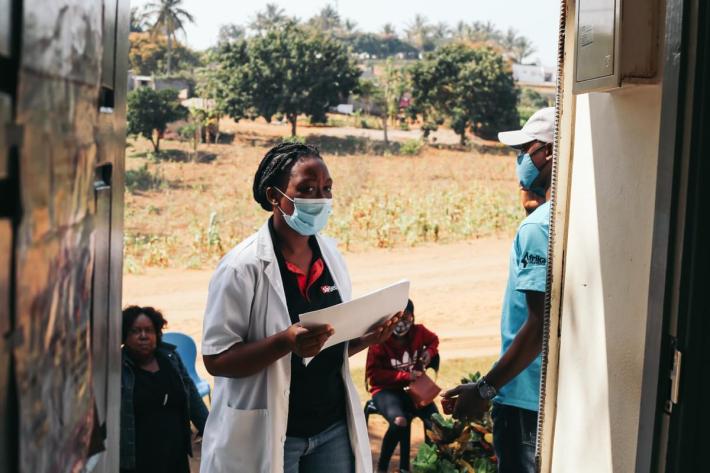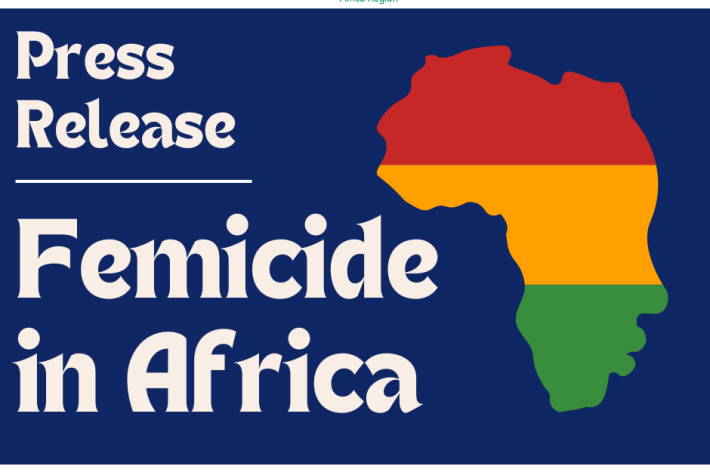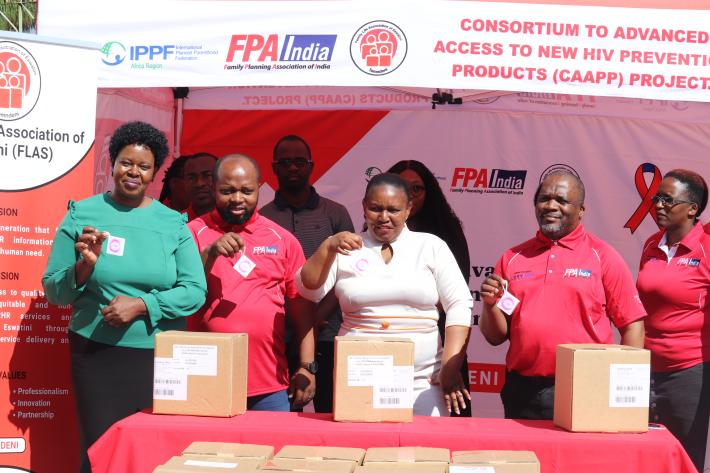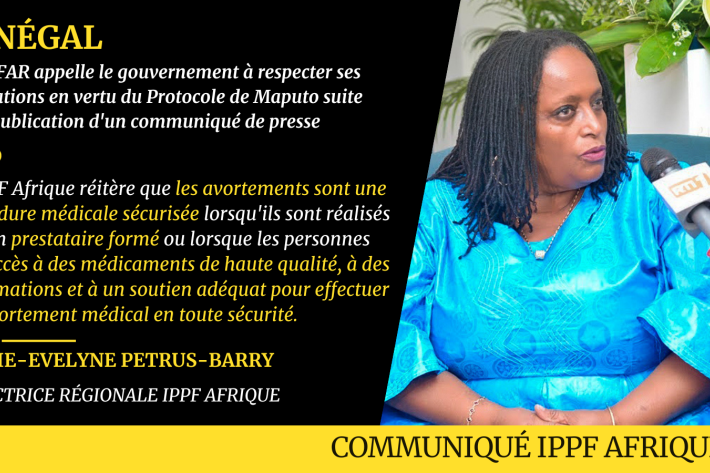Latest press releases
A selection of stories from across the Federation
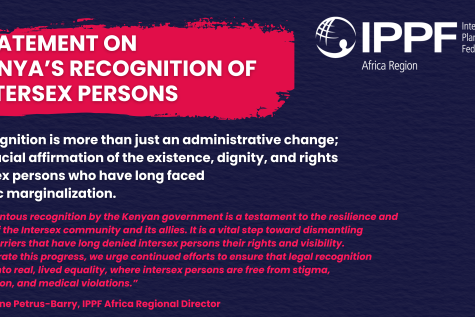
Kenya
IPPF Africa Region Welcomes Kenya’s Landmark Recognition of Intersex Persons
IPPF Africa Region Welcomes Kenya’s Landmark Recognition of Intersex Persons Nairobi, Kenya: 13 February 2025 – On 31 January 2025, Kenya has taken a groundbreaking step towards inclusivity and human rights by officially recognizing intersex as a sex marker alongside male and female in the Kenya Legal Notice 153 of 2025.


| 19 January 2022
African Girls Summit 2021: IPPF reaffirms its commitment to eliminate all forms of violence against women and girls
Organised by the African Union Commission, the African Girls' Summit aims to accelerate the realisation of girls' rights, including the elimination of harmful practices such as female genital mutilation, early marriage, and breast-bandaging, as well as their rights to education and sexual and reproductive health. This is the third summit under this theme, the first edition having been held in Lusaka, Zambia from 26 to 27 November 2015, and the 2nd summit in Accra, Ghana from 21 to 24 November 2018. During the opening ceremony, the Representative of the UN Secretary-General's Special Envoy on Violence against Children, Ms. Najat Maalla M'Jid, shared a strong message: "We must keep in mind that Africa's children and youth are Africa's capital, Africa's richest source of wealth, with a population that is growing and is expected to reach 830 million by 2050". In his speech, Niger’s Head of State, Mr. Mohamed Bazoum, said that the theme of the summit confirms "the commitment of African countries to work together for human development on the continent by relying in particular on women and youth.” According to him, "We have, through this meeting, the opportunity to analyse, monitor and better guide the actions of our States in terms of protection of the human rights of girls who constitute an important part of the population of our countries.” IPPF participated through the intervention of its African Regional Director, Ms. Marie-Evelyne Pétrus-Barry, during two panels, respectively on the themes: "The impact of COVID-19 on women and girls: an integrated response" and "Young people engage with Member States to end harmful practices". During these exchanges, the Regional Director reaffirmed "IPPF's commitment to eliminate all forms of violence against women and girls, to protect their rights and to ensure the provision of and access to the services and information necessary to protect their health and well-being". She stressed the devastating impact of harmful practices on women's and girls' sexual and reproductive health, as well as their mental and psychosocial health: "Female genital mutilation and child marriage are both linked to high rates of maternal mortality and low use of family planning leading to unwanted pregnancies. They deprive women of the opportunity to be educated, to become imaginative, innovative and creative, to open up to new possibilities, and to enjoy the full benefits of decent work for themselves and their families.” She also noted the work of its Member Associations in being innovative and resilient to the challenges of COVID-19. "They have, among other things, simultaneously developed telemedicine, door-to-door and their mobile clinics to meet the SRH needs of confined women, digitised sex education for young people deprived of school, etc." She also celebrated the work of young people and thanked them for their actions in promoting sexual and reproductive rights on the continent: "Thank you young women and men, thank you for all you are doing today, and for the many things you will still accomplish. I have great admiration for you, and I think I speak for many people of my age when I say that we admire you and are ready to learn from you.” It is IPPF's duty to support young people, especially young women and girls, and to give them all the support they need to realize and implement their collective commitments to sexual and reproductive rights. IPPF is, and will remain, at their side.











